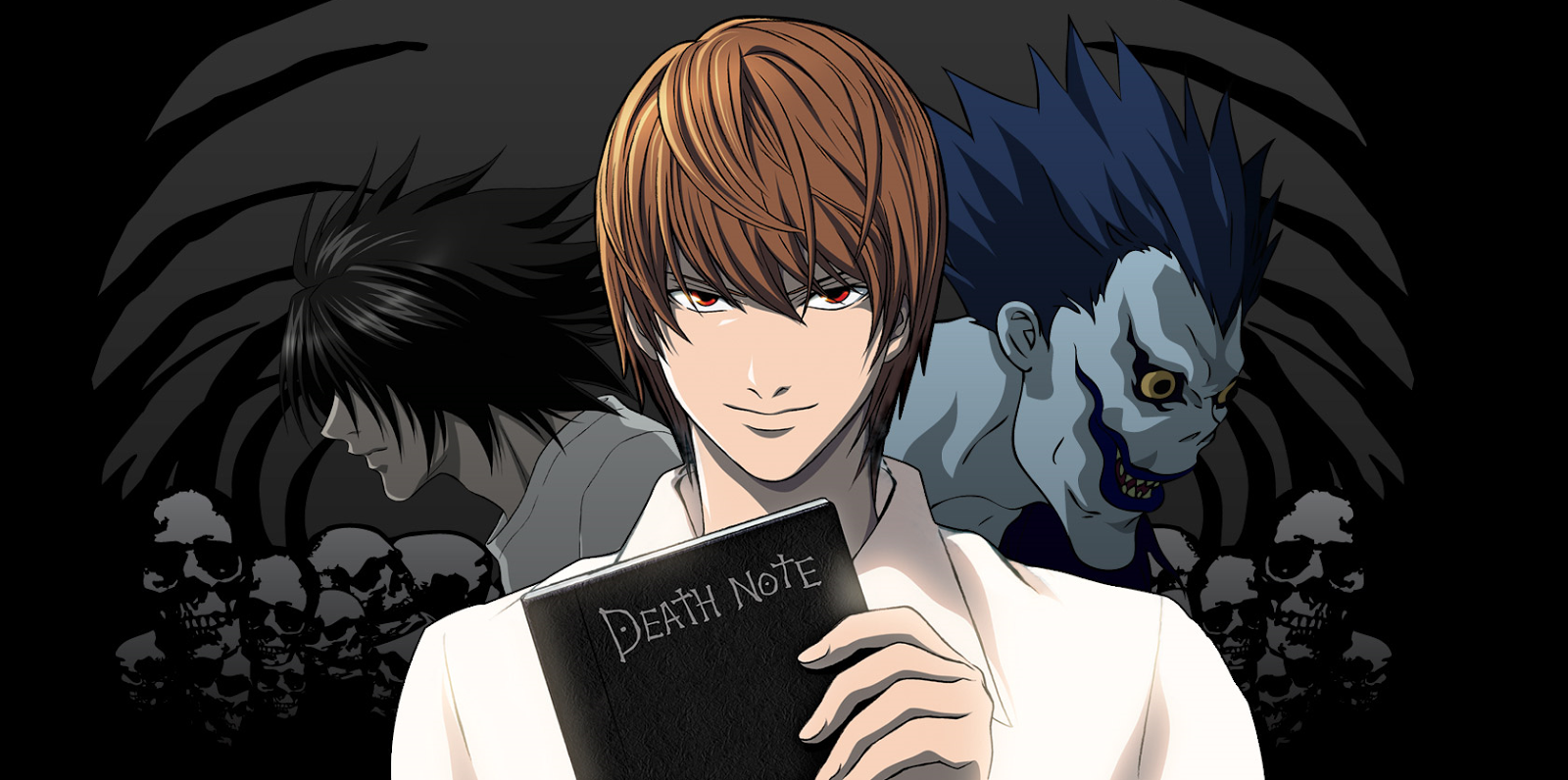Exploring The Dark World Of Anime Death Note: A Comprehensive Guide
Anime Death Note has captivated audiences worldwide with its intricate storytelling and moral dilemmas. This psychological thriller delves deep into the mind of its protagonist, Light Yagami, as he discovers a mysterious notebook that grants him the power to kill anyone by simply writing their name in it. In this article, we will explore the various aspects of Death Note, from its plot and characters to its impact on popular culture and its critical reception.
First released as a manga series in 2003, Death Note quickly transitioned into an anime adaptation that has since become a classic in the genre. The gripping narrative and complex characters have not only garnered a massive fanbase but have also sparked numerous discussions about justice, morality, and the consequences of absolute power. This article will provide valuable insights for both newcomers and seasoned fans of the series.
To facilitate your reading experience, we have broken down the article into various sections, covering everything from character analysis to its influence on modern anime. Whether you're looking to revisit the series or dive into it for the first time, this guide aims to be your go-to resource for all things Death Note.
Table of Contents
- 1. Overview of Death Note
- 2. The Plot: A Battle of Wits
- 3. Character Profiles
- 4. Themes and Moral Questions
- 5. Cultural Impact and Legacy
- 6. Critical Reception
- 7. Adaptations Beyond the Anime
- 8. Conclusion
1. Overview of Death Note
Death Note is a psychological thriller that explores the ethical implications of justice and power. Created by Tsugumi Ohba and illustrated by Takeshi Obata, the series started as a manga and was later adapted into an anime that aired from 2006 to 2007. The story revolves around Light Yagami, a high school student who discovers a supernatural notebook that allows him to kill anyone by writing their name in it.
2. The Plot: A Battle of Wits
The plot of Death Note is centered around the cat-and-mouse game between Light Yagami, who adopts the persona of "Kira," and the enigmatic detective known only as "L." As Light attempts to rid the world of criminals using the Death Note, L is tasked with capturing him. The narrative escalates as both characters employ their intellect and cunning to outsmart each other, leading to a gripping and suspenseful storyline.
3. Character Profiles
The characters in Death Note are richly developed and play crucial roles in the story. Here are some of the main characters:
3.1 Light Yagami
Light Yagami is the protagonist who discovers the Death Note and believes he can create a utopia free of crime. His descent into darkness raises questions about morality and justice.
3.2 L
L is the mysterious detective who is determined to capture Kira. His unconventional methods and brilliant mind make him a formidable opponent for Light.
3.3 Ryuk
Ryuk is the Shinigami (death god) who drops the Death Note into the human world. He serves as a guide to Light, providing insight into the rules of using the notebook.
4. Themes and Moral Questions
Death Note delves into several profound themes, including:
- Justice vs. Revenge: The series raises questions about what constitutes justice and whether it can be achieved through vengeance.
- Power and Corruption: Light's transformation from a well-intentioned student to a ruthless killer illustrates how power can corrupt even the best of intentions.
- The Value of Life: The act of taking a life, even with the intention of creating a better world, is a central moral dilemma in the series.
5. Cultural Impact and Legacy
Since its release, Death Note has had a significant impact on anime and manga culture. It has inspired numerous adaptations, including live-action films, stage plays, and even a musical. The series has also influenced many creators, leading to the emergence of similar psychological thrillers in the anime genre.
6. Critical Reception
Death Note received widespread acclaim for its storytelling, character development, and philosophical themes. Critics have praised the intense cat-and-mouse dynamic between Light and L, as well as the moral ambiguity of the characters. The anime adaptation is often regarded as one of the best in the genre, with a high rating on various platforms.
7. Adaptations Beyond the Anime
In addition to the original manga and anime, Death Note has been adapted into various forms, including:
- Live-Action Films: Several Japanese live-action films have been produced, exploring different storylines based on the original material.
- American Adaptation: An American film adaptation released on Netflix received mixed reviews from fans and critics alike.
- Stage Productions: The series has been adapted into stage plays, showcasing its popularity in various entertainment mediums.
8. Conclusion
In conclusion, Anime Death Note remains a standout series in the realm of psychological thrillers. Its complex characters, moral dilemmas, and gripping plot have left a lasting impact on both fans and creators alike. Whether you're revisiting the series or exploring it for the first time, Death Note offers a thought-provoking experience that challenges our perceptions of justice and morality.
We encourage you to share your thoughts about Death Note in the comments below and explore more articles on our site for a deeper understanding of anime and its cultural significance.
Thank you for reading, and we hope to see you back for more engaging content!
Exploring The Life And Career Of Sean Evans: The Culinary Interview Maestro
Exploring The Inquisitors Of Warhammer 40K: The Ultimate Guide
Dagon Fight: The Ultimate Guide To Understanding This Mythical Battle

![L Death Note [3] wallpaper Anime wallpapers 14078](https://i2.wp.com/cdn.suwalls.com/wallpapers/anime/l-death-note-14078-1920x1200.jpg)
